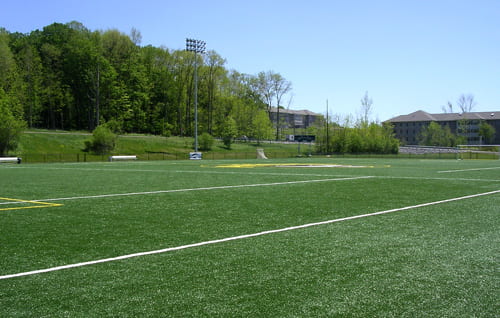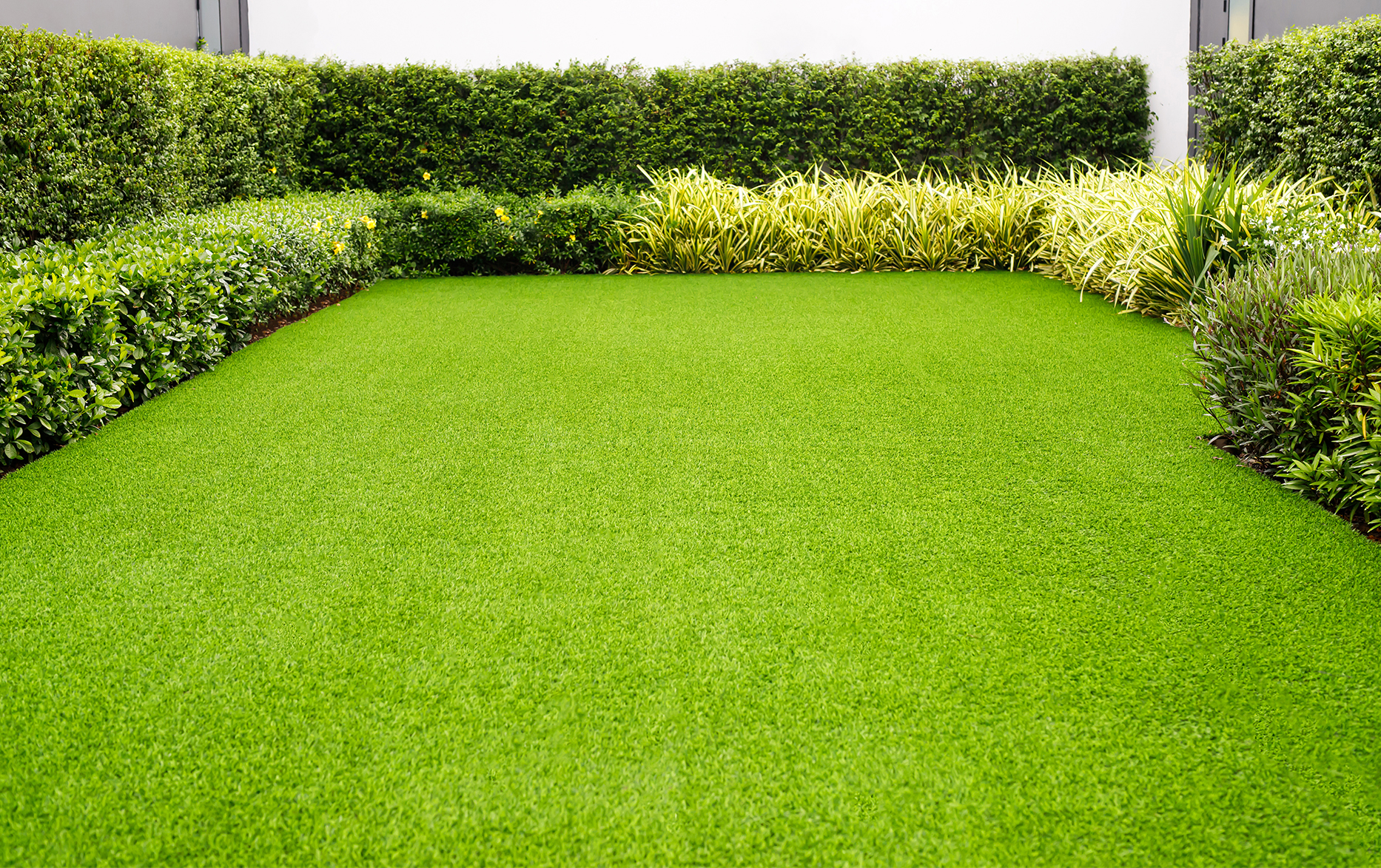Select Reliable Artificial Turf Companies Phoenix for Durable and Natural-Looking Grass
Select Reliable Artificial Turf Companies Phoenix for Durable and Natural-Looking Grass
Blog Article
Explore the Environmental Perks of Opting for Artificial Lawn Solutions
The fostering of synthetic grass remedies presents a compelling opportunity to address pushing ecological obstacles. By considerably decreasing water usage and minimizing the application of unsafe chemicals, these alternatives not only promote sustainable landscape design yet additionally protect regional communities. Moreover, the lower carbon impact connected with lowered upkeep tasks adds to a more sustainable approach to land monitoring. The ramifications of these advantages extend past mere preservation initiatives, increasing questions concerning their long-lasting influence on habitat conservation and overall environmental balance. Checking out these dimensions exposes an intricate interplay worth considering.
Water Conservation Perks
One of the most considerable benefits of artificial lawn is its capability to preserve water. In contrast, synthetic turf does not need watering, significantly decreasing the overall need for water sources.
By getting rid of the need for normal watering, synthetic grass contributes to sustainable landscape techniques and assists mitigate the ecological impact of extreme water intake. Furthermore, the conservation of water reaches the reduction of overflow, which can lead to dirt disintegration and river contamination.
Additionally, the installment of fabricated grass allows homeowners and municipalities to allocate water sources more successfully, concentrating on crucial uses such as alcohol consumption water and agriculture. The change in the direction of synthetic grass not only promotes responsible water usage however additionally aligns with broader environmental objectives focused on preserving natural sources.
As neighborhoods significantly focus on sustainability, the water conservation benefits of synthetic grass provide a compelling case for its adoption in business and household landscaping projects.
Decreased Chemical Use
The shift to synthetic grass significantly decreases the reliance on chemical treatments frequently made use of in all-natural yard upkeep. Conventional turf management generally involves the application of fertilizers, chemicals, and herbicides to promote growth and control pests. These chemicals can posture risks to human wellness, regional wildlife, and the setting, contributing to dirt and water contamination.
In comparison, synthetic lawn eliminates the requirement for these hazardous materials. By minimizing the release of synthetic compounds into the environment, fabricated turf promotes healthier soil and water systems.
Additionally, the lack of chemical runoff related to synthetic grass installations helps shield local waterways from air pollution, supporting water life and preserving biodiversity. Arizona artificial turf. As neighborhoods significantly prioritize lasting methods, going with fabricated grass offers a feasible solution that lines up with environmental conservation goals. With this shift, homeowner can take pleasure in rich eco-friendly spaces without compromising eco-friendly wellness, leading the method for an extra sustainable future
Lower Carbon Footprint

Moreover, the installation of man-made lawn can result in considerable water preservation. Natural grass need substantial amounts of water for watering, which not only includes in the carbon impact connected with water removal and treatment however also pressures regional water sources. In comparison, synthetic grass needs marginal maintenance, calling for no watering, consequently considerably lowering water use and its connected energy expenses.
Furthermore, the longevity of synthetic grass adds to its decreased carbon effect. With a life-span of up to 15 years or even more, the need for regular replacements is lessened, resulting in less waste and reduced energy usage in production and dealing with standard lawn alternatives. In general, synthetic grass provides a sustainable choice for eco aware landscape design.
Environment Conservation
Environment conservation is an essential factor to consider in the dispute over landscape design selections, specifically when contrasting synthetic grass to natural turf. Natural turf lawns frequently require comprehensive upkeep, including using plant foods, herbicides, and pesticides, which can adversely influence local ecological communities. These chemicals can seep into the dirt and rivers, damaging indigenous plants and fauna and disrupting local habitats.
In comparison, synthetic grass presents a possibility to lower the eco-friendly footprint of landscape design. By selecting artificial turf, property owners can minimize the disruption of all-natural habitats connected with typical lawn treatment methods. Synthetic grass gets rid of the requirement for hazardous chemicals, therefore safeguarding neighboring wildlife and keeping the stability of bordering communities. The installment of man-made turf can lead to the conversion of former grass locations right into more biodiverse landscapes, such as pollinator gardens or native plant locations, which can sustain regional wild animals.
Inevitably, click for more the transition to synthetic grass not just saves water and decreases maintenance efforts but likewise fosters a much more unified partnership in between human tasks and the discover here native environment, promoting habitat preservation at the same time.
Long-Term Sustainability
Lasting sustainability is an essential factor in assessing the advantages of artificial lawn over typical lawn yards. One of one of the most substantial advantages of synthetic grass is its toughness; it can last up to 15-20 years with very little upkeep, whereas natural lawn needs regular reseeding and substitute. This durability reduces the need for continuous sources, such as water, plant foods, and pesticides, which are important for maintaining a healthy yard lawn.
In addition, synthetic grass adds to a reduction in carbon discharges related to grass treatment equipment. Typical lawns usually require gas-powered lawn mowers, leaners, and blowers, all of which add to air pollution. Turf installation phoenix az. On the other hand, fabricated turf gets rid of the requirement for such tools, promoting a cleaner atmosphere
In addition, the production of synthetic grass significantly uses recycled products, boosting its sustainability profile. As producers take on environmentally friendly methods, the ecological impact of synthetic grass continues to reduce.

Conclusion
The adoption of fabricated lawn remedies offers significant environmental advantages, including substantial water conservation, decreased reliance on harmful chemicals, and a lower carbon footprint. Moreover, synthetic grass aids in maintaining all-natural habitats by lessening land disruption and promoting lasting sustainability via using resilient materials. Collectively, these variables emphasize the possibility of synthetic grass to contribute favorably to ecological wellness and use a feasible option to conventional landscaping methods in a significantly resource-conscious globe.
In comparison, artificial grass does not need watering, considerably decreasing the overall demand for water resources. By decreasing the launch imp source of artificial substances right into the ecosystem, fabricated turf promotes healthier soil and water systems.
Moreover, the installment of artificial lawn can result in substantial water conservation. In comparison, man-made lawn needs very little maintenance, calling for no watering, therefore considerably minimizing water use and its connected energy expenses.

Report this page